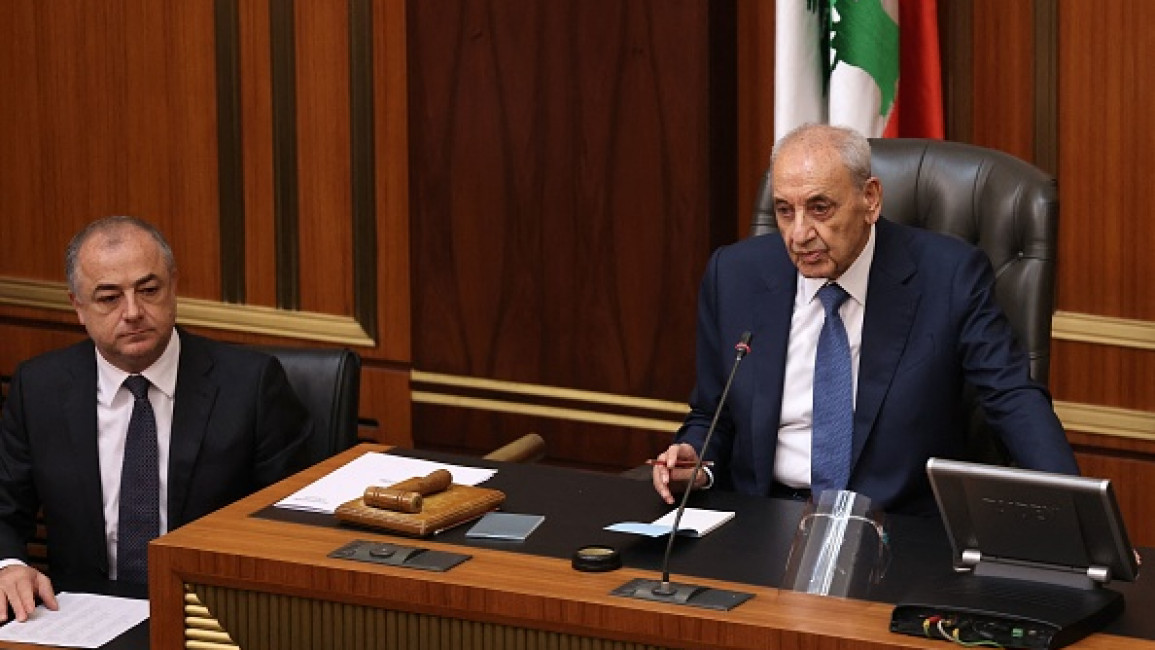Lebanese parliament speaker Nabih Berri cancels forum on new president
Lebanon's Speaker of the House, Nabih Berri, cancelled on Wednesday a previous invitation for Lebanon's major political parties to meet and try to reach a consensus on a presidential candidate.
Berri's press office said that he cancelled the national dialogue session "as a result of objection and reservation, especially by the Lebanese Forces [LF] and the Free Patriotic Movement [FPM]."
Previously, Berri had called for dialogue between parties so that they could settle on a candidate acceptable to all.
Lebanon is without a president as of Tuesday, leaving the country without a head of state and government. Without a president, a cabinet with a popular mandate cannot be formed, so Lebanon will continue to be ruled by a caretaker government with limited powers.
Lebanon's parliament has met four times in order to elect a new president, but no clear winner has yet emerged. The legislative body is divided into three blocs, all of which are at odds regarding who should take the presidency.
Berri had previously said that these voting sessions were without value if blocs did not come to a consensus.
Previous presidents, including former President Michel Aoun, were elected as part of a bigger deal between political parties, rather than through parliamentary debate.
The power vacuum is ill-timed, as the country is in the throes of an economic meltdown, with the currency having lost 95 per cent of its value. Over two-thirds of the population has been thrust into poverty by the crisis and hyperinflation has meant basic goods are out of reach for much of the country.
Analysts forecast weeks to months of coming gridlock before the country’s political class can come to a consensus over who the next president should be.
In the meantime, political reforms needed to unlock international aid will be stalled.



